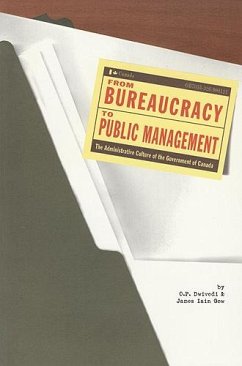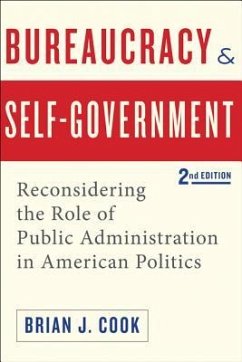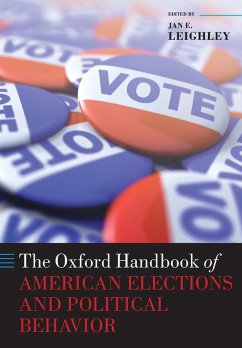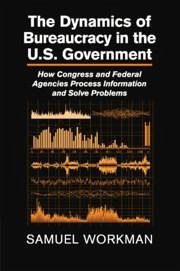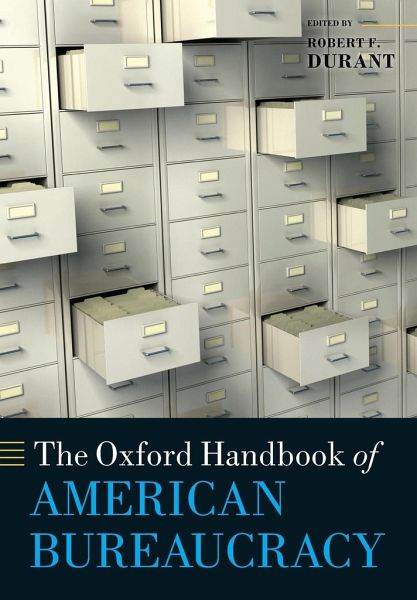
Oxford Handbook of American Bureaucracy
Versandkostenfrei!
Versandfertig in 1-2 Wochen
69,99 €
inkl. MwSt.

PAYBACK Punkte
35 °P sammeln!
One of the major dilemmas facing the administrative state in the United States today is discerning how best to harness for public purposes the dynamism of markets, the passion and commitment of nonprofit and volunteer organizations, and the public-interest-oriented expertise of the career civil service. Researchers across a variety of disciplines, fields, and subfields have independently investigated aspects of the formidable challenges, choices, and opportunities this dilemma poses for governance, democratic constitutionalism, and theory building. This literature is vast, affords multiple and...
One of the major dilemmas facing the administrative state in the United States today is discerning how best to harness for public purposes the dynamism of markets, the passion and commitment of nonprofit and volunteer organizations, and the public-interest-oriented expertise of the career civil service. Researchers across a variety of disciplines, fields, and subfields have independently investigated aspects of the formidable challenges, choices, and opportunities this dilemma poses for governance, democratic constitutionalism, and theory building. This literature is vast, affords multiple and conflicting perspectives, is methodologically diverse, and is fragmented. The Oxford Handbook of American Bureaucracy affords readers an uncommon overview and integration of this eclectic body of knowledge as adduced by many of its most respected researchers. Each of the chapters identifies major issues and trends, critically takes stock of the state of knowledge, and ponders where future research is most promising. Unprecedented in scope, methodological diversity, scholarly viewpoint, and substantive integration, this volume is invaluable for assessing where the study of American bureaucracy stands at the end of the first decade of the 21st century, and where leading scholars think it should go in the future.






